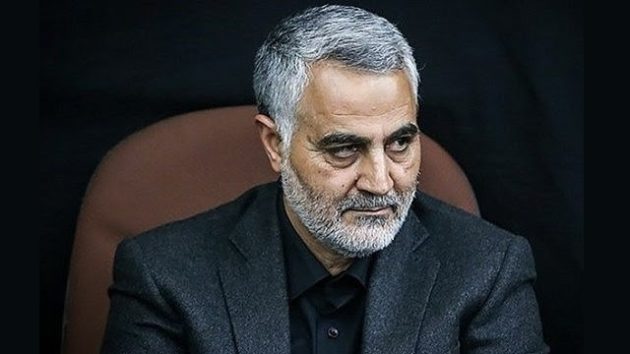Does Iran Support The Islamic State? by Kyle Orton
In 2010, Farzad Farhangian, an Iranian diplomat based in Belgium, defected to Norway. Farhangian has now emerged with the extraordinary accusation that the Islamic Republic of Iran is controlling the Islamic State (ISIS) and using it as part of Tehran’s war against the Gulf States, especially Saudi Arabia. Farhangian’s accusations are lurid and (literally) incredible, but the question of Iran’s role in ISIS’ creation and growth, and Iran’s manipulation of ISIS to further its own ends, is one well worth asking.
Farhangian made his accusations in two separate posts, one dated February 25 and one from May 16. (Thanks be to @Paradoxy13 for translation.) Farhangian has been identified in media reports as the press attaché at the Iranian Embassy in Brussels; his own account adds to that that he was an advisor at the Iranian Foreign Ministry and worked in the Iranian Embassies in Dubai, Iraq, Morocco, and Yemen.
Farhangian says that after meeting with elements of the Iranian opposition in Paris, France, he then “spent four important hours with a high ranking Revolutionary Guard commander who left his post a while ago and is now arranging his residency abroad so he can announce that he is joining the opposition.” Farhangian says that he would ideally have liked to wait until the Guardsman was in the clear, but felt that what the Guardsman had to say was too important to wait. Farhangian says that what the Revolutionary Guardsman said was buttressed by a “confidential and extremely sensitive document”. Farhangian writes:
One of the most dangerous things I was informed of with photos and documents … was that Daesh [ISIS] was being managed and controlled through a military operations room in Mashhad [in northwestern Iran], and the room is being managed by high ranking Russian and Iranian intelligence commanders. The goal is to create chaos in the Arab world in general and the Gulf countries in particular, especially Saudi Arabia. The Iranian regime still believes and seeks by all means to subdue Mecca and Medina to Wilayat al-Faqih [the ruling ideology of the Iranian theocracy]. Russia on the other hand sees that revenge is inevitable because it believes that Saudi Arabia played a big role in dismantling the Soviet Union and its defeat in Afghanistan after it drove oil prices down causing economic collapse in the Soviet Union.
The Russian and Iranian operations room in Mashhad uses Russian satellites to provide support to Daesh in its plans, movements, and the tactics that they follow in their operations, in addition to providing intelligence on the international coalition sorties that target the organisation.
Iran wishes to “drag Jordan and Egypt into the war and to infiltrate Saudi and Kuwaiti land,” Farhangian says, and the setting up of ISIS outposts in Libya and the Sinai desert of Egypt is the prelude to the announcement of an Islamic State across North Africa that can be used as a launch-pad for an attack on the Gulf States. Meanwhile, Iran is seeking “to encircle Saudi Arabia” by means of “open[ing] a front on the northern borders of Saudi Arabia through Iraqi Shi’ite militias … to ease the pressure on the Houthis to the south [of Saudi Arabia], [and] at the same time Daesh will be carrying out terrorist acts in Saudi Arabia in the coming weeks.”
So how reliable is all this? As stated: not very. Conspiracies of this scale and intricacy just do not happen. But what of the idea that Iran is using ISIS to further its strategic ambitions? On that the evidence is rather more suggestive.
Though the Obama administration is now sold on Iran as a partner in the anti-ISIS war, I noted recently that one of the reasons this won’t work is because Iran doesn’t want to defeat ISIS, at least not now. Iran has its strategic holdings in Iraq and Syria and its access to Hizballah in Lebanon. Iran couldn’t rule over all the Sunnis under ISIS’ “Caliphate” anyway, and ISIS’ presence helps keep Iraq and Syria off-balance—giving Iran the weak neighbours it has always wanted—and the ISIS menace helps keep any opposition to Iranian hegemony among the governments in Baghdad and Damascus side-lined when the alternative is extermination.
This, however, is only the most indirect means by which Iran has helped ISIS build its power. One “cannot truly understand ISIS today,” Michael Weiss and Hassan Hassan write in their superb book on the takfiri group, without examining “the agendas of [the] regimes in Iran and Syria”.
RELATED ARTICLES:
Iran and Pakistan collaborate with ISIS in Afghanistan
ISIS Flag Among Refugees in Germany Fighting the Police
EDITORS NOTE: This column originally appeared on The Syrian Intifada. The featured image is of Qassem Suleimani, Iran’s spymaster.



Leave a Reply
Want to join the discussion?Feel free to contribute!